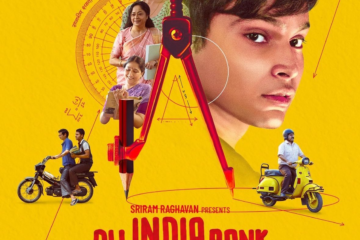

Haseen Dillruba returns three years after Vinil Mathew’s romantic thriller provided some solace amongst the COVID-19 pandemic by capitalising on the charm and benevolence of Rani Kashyap.
It seems like a soggy squib, but it promises to be a sensual follow-up to spice up the rainy season. The creators attempt once more to provide Netflix viewers with a desi dose of pulp fantasy, but they are unable to transform Manohar Kahani into a romantic noir.
One aspect of the issue is that, aside from the naive law enforcement at the conclusion, there wasn’t much more to the scandalous tale of the small-town beautician who takes her time deciding what kind of man she wants in her life.
Because of this, the Jayprad Desai-directed sequel’s build-up feels a little forced, and Kanika Dhillon’s purple language bores the reader to death because the dialogue-baazi takes a long time to actually do anything. Even though it takes place in Agra, the crime lacks passion and the relationship is lifeless. It turns out that switching back and forth to maintain the tension is more of an editing trick than a natural activity.
An enjoyable watch in the original was Rani’s predicament. She weds a well-mannered man, but the husband’s hunky cousin wins her over. Rani becomes confused when her dedicated spouse gains muscle, and this causes a deeper disarray. After three summers, the trickery and threat lose their depth, and we become tired of the intended payoff.
As a tribute to the genre, the film pays homage to a fictional pulp fiction writer whose writings inspire everyone, but the self-awareness of introducing him gets a bit too blatant, and his love advice becomes stale pretty quickly.
My heart only really raced with excitement when Ek Hasina Thi, Ek Deewana Tha began to play in the background. That a 1980 song from Subhash Ghai’s Karz is still played in 2024 to give people chills tells something about Bollywood’s current level of innovation and inventiveness. However, because the writers chose to play it safe with the actor’s image in the second edition, the text is out of step with the moral complexity of the beloved song. The narrative doesn’t convey the seductive and filthy crimson tones that are tossed in during chats in the parlour. Furthermore, in the follow-up, the movie’s iconic line—”if love does not push you to the brink of insanity, it is not true love”—is reduced to a passing comment.
The absence of covalent charge in the link between Rani and Abhimanyu in this chapter results in a lack of the sexual tension that gripped us throughout the middle overs of the previous installment involving Taapsee and Harshvardhan Rane’s characters. Although Sunny is a talented performer, the part called for a bit more flamboyance. Jimmy, who has a weak personality, doesn’t fit in with the proceedings and seems completely uninterested in the case. Taapsee needs to press the reset button in order to break out from her rut, and Vikrant, who brought the plot to life in the first chapter, has limited options. She is effective without being thrilling, just like the movie.

























































